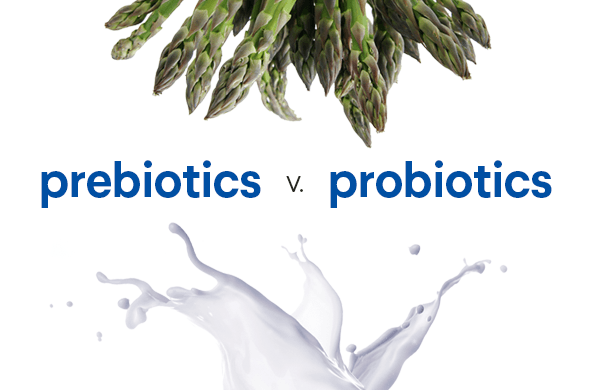Acute gastroenteritis can be caused by bacteria or viruses. Rotavirus is one of the most common pathogens that cause acute pediatric diarrhea. Rotavirus invades and replicates in small intestinal epithelial columnar cells, resulting in loss of microvilli and decreased villi/follicle ratio and increased intestinal permeability, resulting in intestinal mucosal damage. Some studies have shown that screened probiotics such as LrhamnosusGG, L.reuteri, L.caseiShiro ta and BlacticBb12 can shorten the period of rotavirus diarrhea by about 1d7l. The intake of L.casei GG live bacteria can promote the production of anti-rotavirus-specific IgA in serum. More effective than dead bacteria. Some mechanism may exist behind this result. When treated with certain probiotics, the production (amount) of rotavirus-specific IgA antibodies will increase and the intestinal mucosal penetration will decrease, and the composition of the intestinal flora will return to normal. How probiotics protect against bacterial diarrhoea in humans There is insufficient data and conflicting conclusions have been reported in animals. Inoculation of Leubacterium-containing preparations in the infected ileum following the induction of diarrhea with Ecoli enterotoxin in the rabbit model resulted in a marked antitoxin response. Horses suffering from acute abdominal pain after surgery were given probiotics to prevent the spread of Salmonella and diarrhea. But it was unsuccessful. Lacidophilus LA1 human isolate showed antibacterial activity against Salmonella typhimurium after oral infection of conventional or sterile animals. Antibacterial activity was also replicated in vitro with Salmonella-infected Caco-2 cells. A commercial product containing dry L.ac idophilus and Lbulgaricus was ingested by oral administration of thermostable and thermolabile enterotoxin-producing Ecoli in adult volunteers, but the diarrhea course failed to improve.probioticseverything.com
probiotic qiara
probiotic qiara
probiotic qiara
In conclusion. Although the effect of bacteriotherapy has been reported in different animal and cell culture models, it is questionable how bacteriotherapy works in human bacterial diarrhea.probioticseverything.com
probiotic qiara
probiotic qiara
probiotic qiara
Antibiotic-associated diarrhea (AAD) occurs in 20% of patients receiving antibiotics. AAD is caused by a microbial imbalance in the gut, which in turn leads to a reduction in the endogenous flora responsible for colonization resistance and a decrease in colonic fermentative capacity. Clostridium difficile and Klebsiella oxytoca are associated with the development of AAD in some cases and are responsible for the development of colonic lesions. Several studies are investigating whether probiotic intake can prevent the development of antibiotic-associated bowel syndrome, primarily AAD.probioticseverything.com
probiotic qiara
probiotic qiara
probiotic qiara







